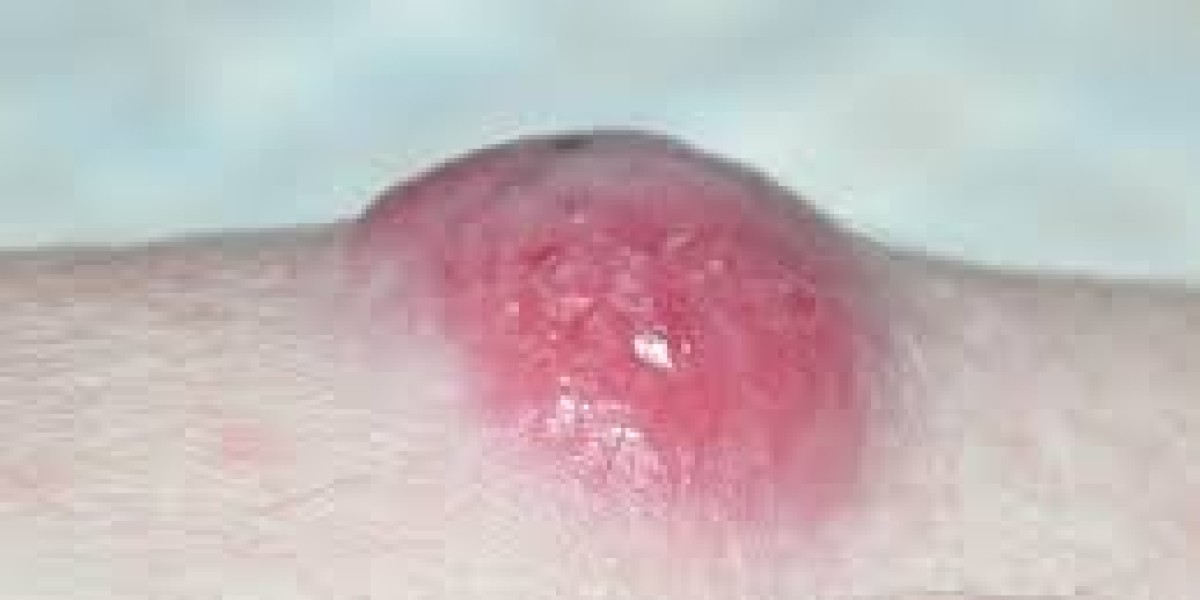Merkel Cell Carcinoma (MCC) remains one of the most challenging oncological entities due to its aggressive nature and complex biology. Over the past decade, significant strides have been made in its clinical management, fueled by a deeper understanding of Merkel Cell Carcinoma Epidemiology and a rapidly evolving therapeutic landscape. With a robust pipeline of innovative Merkel Cell Carcinoma Therapies and a promising Merkel Cell Carcinoma Forecast, the market is witnessing unprecedented growth, driven by precision oncology and targeted treatment strategies. This article explores the clinical success stories, market dynamics, and innovative developments shaping MCC management today.
For more in-depth insights on Merkel Cell Carcinoma treatments and challenges, download the full report @ Merkel Cell Carcinoma Market Report.
Merkel Cell Carcinoma Market Dynamics
The Merkel Cell Carcinoma Market has garnered substantial attention globally, especially as healthcare systems increasingly prioritize early detection and personalized treatment approaches. MCC’s aggressive progression and high mortality rate if not promptly managed have led to significant investments in both diagnostic and therapeutic innovations. In the major seven markets (7MM), which include the United States, the EU4 (Germany, France, Italy, and Spain), the United Kingdom, and Japan, the MCC market is on track for robust expansion. Recent reports highlight a compound annual growth rate (CAGR) of approximately 8.7% from a base of nearly USD 411 million between 2023 and 2034. This remarkable Merkel Cell Carcinoma Market Size is a reflection of the growing diagnostic awareness, the surge in clinical research investments, and the advent of breakthrough therapies that are rapidly transforming MCC management.
The United States plays a pivotal role in this market, contributing around 44% of the total market size in 2023. In comparison, the remaining share is distributed among the EU4 and the United Kingdom, with Germany emerging as a leader within these regions. These regional variations in Merkel Cell Carcinoma Epidemiology and healthcare infrastructure underscore the need for tailored market strategies and targeted investments. Investors and industry stakeholders are closely monitoring these trends, as they not only indicate current market performance but also set the stage for future developments within the Merkel Cell Carcinoma Market.
MCC Epidemiology and the Underlying Causes
Epidemiological insights form the cornerstone of any effective oncology strategy, and MCC is no exception. In 2023 alone, approximately 9,000 new cases were identified in the 7MM, with the United States accounting for nearly 37% of these cases. This significant incidence rate has sparked a renewed focus on understanding the underlying causes of MCC, primarily the role of Merkel cell polyomavirus (MCPyV) and ultraviolet (UV) radiation. Epidemiological studies have revealed that nearly 80% of cases in the EU4 and the United Kingdom are associated with MCPyV, while the remaining 20% can be linked to UV-induced damage.
These statistics not only enhance our understanding of Merkel Cell Carcinoma Epidemiology but also highlight the importance of developing precise diagnostic tools and targeted therapies. The distinction between virus-associated and UV-induced cases paves the way for more nuanced approaches in early detection and treatment. As research delves deeper into the molecular pathways implicated in MCC, the identification of reliable biomarkers is becoming a key focus area. These biomarkers are essential for early diagnosis and could significantly improve patient outcomes by facilitating timely intervention. Such efforts also contribute to refining the Merkel Cell Carcinoma Forecast, allowing for better market predictions and strategic planning by Merkel Cell Carcinoma Companies and healthcare providers.
For more detailed insights and the latest updates on Merkel Cell Carcinoma Pipeline drugs visit the Merkel Cell Carcinoma Emerging Drugs.
Merkel Cell Carcinoma Diagnosis and Treatment Strategies
One of the most significant challenges in managing MCC is the difficulty in early and accurate diagnosis. Due to its rarity and clinical similarity to other skin lesions, MCC is often misdiagnosed, which can delay essential treatment interventions. Traditional diagnostic methods such as histology and immunohistochemistry remain critical in confirming MCC. However, the current landscape is rapidly evolving, with a strong push towards the development of novel biomarkers that can enhance the sensitivity and specificity of detection methods.
In clinical practice, surgery is the primary treatment modality, typically supplemented by radiation therapy to address localized tumors. While chemotherapy was once a cornerstone in treating advanced MCC, its declining use reflects the shift towards more effective and safer alternatives. The emergence of Merkel Cell Carcinoma Drugs that harness the immune system—such as KEYTRUDA from Merck and BAVENCIO from Merck KGaA—has revolutionized treatment protocols. These immunotherapies have shown considerable promise in clinical settings, leading to improved survival rates and a better safety profile compared to traditional cytotoxic agents. The focus on immunotherapy and targeted treatment options has not only transformed patient care but also redefined the strategic priorities of Merkel Cell Carcinoma Companies worldwide.
Moreover, the ongoing pursuit of precision medicine in MCC management is bolstered by advances in genomic profiling and biomarker research. Such developments have paved the way for personalized treatment regimens, where therapies are tailored to the genetic and molecular characteristics of individual tumors. This approach has profound implications for both clinical outcomes and the overall Merkel Cell Carcinoma Market Trends, as it drives a shift towards more effective, targeted interventions that promise to reduce recurrence rates and improve long-term patient outcomes.
Merkel Cell Carcinoma Therapies and the Clinical Development Pipeline
The therapeutic landscape of MCC is undergoing a transformation, driven by a vibrant and diverse clinical development pipeline. Several pharmaceutical companies are at the forefront of this innovation, contributing to a dynamic pipeline that is expected to yield multiple breakthrough therapies in the near future. One notable advancement is the investigational agent IFx-2.0 by TuHURA Biosciences, which is set to enter a phase III trial in combination with KEYTRUDA for advanced MCC. This combination strategy represents a significant milestone, indicating a move towards multimodal treatment approaches that could offer superior efficacy compared to monotherapies.
Another promising candidate in the pipeline is 225Ac-SSO110, a somatostatin receptor 2 (SST2) antagonist developed by Ariceum Therapeutics. This targeted radionuclide therapy recently received clearance for a Phase 1/2 trial under the designation SANTANA-225, with patient enrollment expected to commence in early 2025. Developments such as these underscore the vibrant nature of the Merkel Cell Carcinoma Pipeline, where emerging drugs are rapidly progressing through clinical trials, paving the way for next-generation therapies.
The pipeline also includes several other investigational drugs like NIDLEGY by Philogen, MCLA 145 from Merus N.V., ITI 3000 by Immunomic Therapeutics, PH 762 from Phio Pharmaceuticals/AgonOx, and KT 253 by Kymera Therapeutics. Each of these agents represents a unique approach to overcoming the inherent challenges posed by MCC, whether through immunomodulation, targeted inhibition, or novel mechanisms of action. The diversity within the pipeline reflects the concerted efforts of Merkel Cell Carcinoma Companies and researchers to address the multifaceted aspects of the disease. This robust clinical development pipeline is a testament to the industry's commitment to improving patient outcomes while simultaneously driving growth in the overall Merkel Cell Carcinoma Market.
For further insights and detailed research on Merkel Cell Carcinoma Epidemiology, visit the Merkel Cell Carcinoma patient pool.
MCC Emerging Trends and Future Perspectives
As the landscape of MCC management continues to evolve, several emerging trends are poised to redefine both the clinical and commercial outlook of this aggressive cancer. The integration of precision medicine is at the forefront of these trends, with clinicians increasingly leveraging advanced genomic and molecular profiling techniques to tailor treatments. This personalized approach not only enhances therapeutic efficacy but also contributes to a more refined Merkel Cell Carcinoma Forecast, as early and accurate diagnosis becomes more achievable.
Another key trend is the rising prominence of immunotherapy and targeted therapies in MCC treatment strategies. With drugs like KEYTRUDA, ZYNYZ, and BAVENCIO leading the charge, the focus has shifted from conventional cytotoxic chemotherapy to approaches that exploit the body’s own immune system to fight cancer. This paradigm shift has significant implications for the future of MCC management, as it promises to reduce toxicity and improve long-term survival rates. The success of these Merkel Cell Carcinoma Drugs in clinical settings has also catalyzed further investments in research and development, reinforcing the momentum within the Merkel Cell Carcinoma Market Trends.
The ongoing clinical trials and the expanding development pipeline signal a promising future for MCC therapies. As innovative treatment modalities continue to emerge, healthcare providers can expect more effective interventions that not only address advanced stages of the disease but also improve early detection rates. This evolution in treatment strategies is expected to drive market growth significantly, offering new opportunities for Merkel Cell Carcinoma Companies and investors alike. In this rapidly shifting landscape, staying abreast of the latest developments in Merkel Cell Carcinoma Management is essential for all stakeholders, from clinicians and researchers to market analysts and policy makers.
Conclusion
In summary, the field of Merkel Cell Carcinoma management is experiencing a revolutionary transformation driven by cutting-edge clinical developments and robust market growth. The evolution of diagnostic tools, the advent of targeted immunotherapies, and a dynamic clinical development pipeline are reshaping treatment protocols and offering renewed hope for patients battling this aggressive cancer. The impressive Merkel Cell Carcinoma Market Dynamics, underscored by a promising CAGR and substantial market size, highlight the strategic importance of early detection and personalized therapies.
As healthcare providers and Merkel Cell Carcinoma Companies continue to navigate this complex landscape, the emphasis on precision medicine and innovative treatment strategies remains paramount. The integration of novel biomarkers and the successful translation of emerging therapies from clinical trials into standard care are set to redefine the future of MCC management. With a deep understanding of Merkel Cell Carcinoma Epidemiology and a keen eye on market trends, the industry is well-positioned to overcome current challenges and capitalize on emerging opportunities.
The journey towards improved clinical success in MCC treatment is bolstered by a collaborative effort among researchers, clinicians, and industry stakeholders. As evidenced by the advancements in Merkel Cell Carcinoma Therapies and the promising developments within the Merkel Cell Carcinoma Pipeline, the future holds great promise for more effective and safer treatments. For clinicians, researchers, investors, and market analysts, keeping abreast of these cutting-edge developments is crucial to harnessing the full potential of this rapidly evolving field. In an era marked by clinical innovation and market growth, the future of Merkel Cell Carcinoma management looks brighter than ever.
Embracing these innovative trends not only advances patient care but also strengthens the overall market landscape. With a focus on improving survival outcomes and quality of life for MCC patients, the strategic initiatives undertaken by leading Merkel Cell Carcinoma Companies are set to redefine standards of care. As the market continues to expand, the integration of advanced diagnostic tools and personalized therapies will remain a critical driver for success. In this dynamic environment, the collaboration between research, clinical practice, and commercial strategy is the key to unlocking a new era in MCC management, ultimately paving the way for improved patient outcomes and sustained market growth.
To understand which factors are driving Merkel Cell Carcinoma market trends, download our full report.
Read More
About DelveInsight
DelveInsight is a leading business Healthcare consultancy and market research firm specializing in life sciences. It assists pharmaceutical companies by offering comprehensive, end-to-end solutions to improve their performance. Access all our healthcare and pharmaceutical market Competitive Intelligence Solutions.


